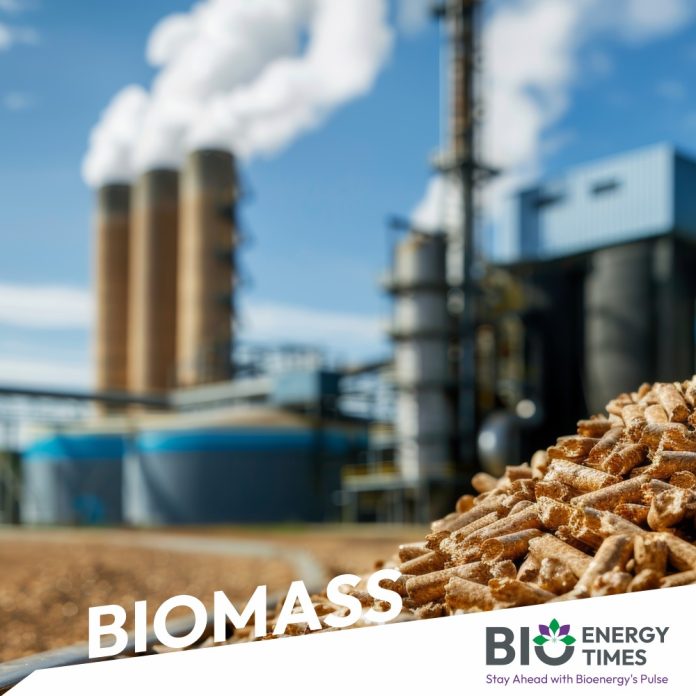Hū Honua Bioenergy and the Hawaiʻi Electric Light Company (HELCO) are once again in talks to bring a long-disputed biomass power plant into operation on Hawaiʻi Island. In a joint letter submitted to the Public Utilities Commission (PUC) on June 3, the two companies signaled their intent to submit a new application for HELCO to purchase electricity from Hū Honua’s facility in Pepeʻekeo, just north of Hilo, reports Hawai’i Public Radio.
The companies confirmed the ongoing negotiations to Hawaiʻi Public Radio but did not disclose additional details.
The proposed biomass plant has been a flashpoint in Hawaiʻi’s energy debates for more than a decade, with questions over its environmental impact, cost to ratepayers, and compliance with state climate goals repeatedly surfacing in regulatory and court proceedings.
Hū Honua first received PUC approval for a power purchase agreement (PPA) with HELCO in 2012. That agreement was later terminated by the utility, citing missed construction deadlines. The termination sparked multiple legal battles, including a lawsuit that remains ongoing in state court.
In 2017, after a conditional settlement, HELCO and Hū Honua again sought PUC approval to restart the plant. The PUC initially agreed, but the environmental group Life of the Land challenged the decision, arguing the commission had failed to fully consider the plant’s greenhouse gas (GHG) emissions.
The matter bounced between the PUC and the Hawaiʻi Supreme Court for years. In 2022, the PUC ultimately denied the proposal, citing concerns about GHG emissions and the projected $11 per month increase in electricity costs for customers. The Hawaiʻi Supreme Court upheld that decision in 2023.
Despite that ruling, the latest joint letter signals a new push by both parties to revive the project. Former PUC Commissioner Jennifer Potter, who opposed the project during her term, said, “It seems the parties are attempting to start the process from scratch.” Potter described the original proceedings as one of the most complex of her tenure, involving “thousands of pages of evidence.”
Biomass energy is officially classified as renewable under Hawaiʻi law, but Hū Honua’s own estimates indicated that the facility could produce over 8 million metric tons of greenhouse gases over the course of a multi-decade contract. The company pledged to offset these emissions by planting eucalyptus and other trees but did not include a binding legal commitment in its plan.
The PUC’s 2022 ruling emphasized the uncertainty surrounding Hū Honua’s carbon offset efforts and noted the risk that the plant could become a net emitter of GHGs over its lifetime.
Additionally, the commission cited cost concerns. The project was expected to displace cheaper sources of renewable energy, such as solar and wind, resulting in higher electricity bills for customers.
In a recent fact sheet, Hū Honua claimed its facility would reduce overall emissions by replacing oil-fired power plants and that its electricity would not be more expensive for consumers.
Company President Warren Lee previously pointed to a partnership with the National Forest Foundation to plant over 3 million trees and reiterated Hū Honua’s goal to be “carbon negative.”
State Representative Matthias Kusch, who now represents Pepeʻekeo and previously lived near the facility, toured the plant in 2024 at Hū Honua’s invitation. While Kusch had once strongly opposed the project—citing concerns such as increased truck traffic—he now says he is keeping an open mind as a lawmaker and plans to listen closely to his constituents.
Meanwhile, environmental watchdog Life of the Land, whose challenge led to the project’s prior rejection, is closely watching the latest developments. Executive Director Henry Curtis warned that approving the facility now, just as the state nears its 2030 climate targets, would be counterproductive. “The idea that we’re going to add a massive greenhouse gas producer to the grid just before 2030 seems absurd,” Curtis said.
He added that Life of the Land is waiting for the new power purchase application to be filed before deciding on next steps but made clear: “We’re not walking away from this.”
With two of the commissioners who rejected Hū Honua’s bid no longer on the PUC, and Commissioner Leo Asuncion—who dissented in 2022—now serving as chair, the regulatory landscape may have shifted. The upcoming application from Hū Honua and HELCO is expected to face renewed scrutiny, particularly regarding its environmental impact and affordability for island residents.
The PUC has not yet announced a timeline for reviewing the new application once it is submitted.















